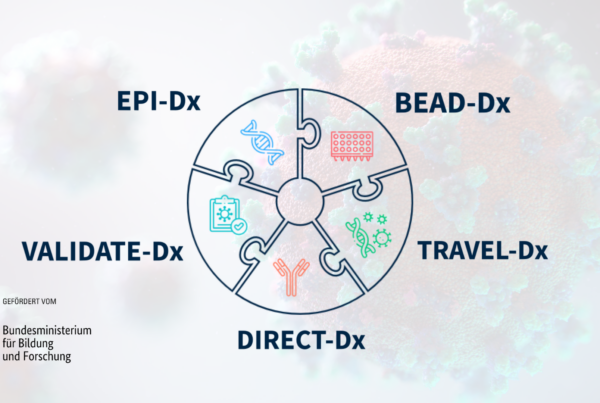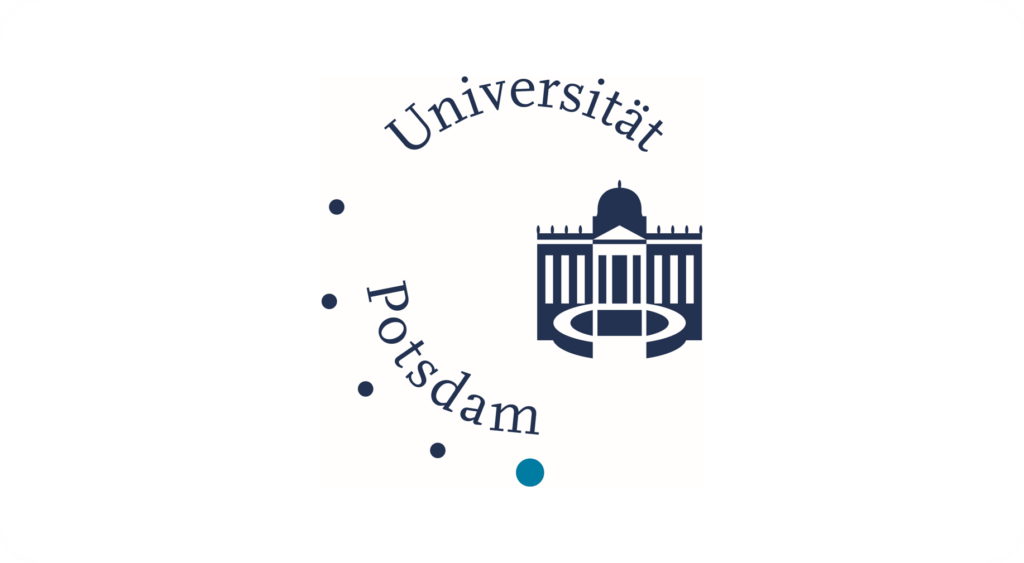

For more than 2 years, the COVID-19 pandemic has continued to take hold. Especially when infection numbers are high, one thing is important: reliable rapid tests. RT-PCR is considered the so-called gold standard, but it depends on access to the virus genome and therefore requires specialised personnel, material and time. For the rapid detection of SARS-CoV-2 viruses, mainly antigen rapid tests were and are still in use, which have also become established for self-tests. These usually detect viral antigens in saliva or nasopharyngeal swab samples, but are less sensitive and less specific in comparison.
The aim of the DIRECT-Dx project is to develop a sensitive diagnostic test that detects the presence of SARS-CoV-2 viruses directly from patient samples without having to access the viruses’ DNA. The research group of Prof. Frank Bier at the University of Potsdam, together with the company Preclinics, is developing peptides and monoclonal antibodies for this purpose, which can bind the antigens directly from the samples very specifically and sensitively.

(pseudo)viruses and their antigens

peptides and antibodies as strong virus binders

LFA test stripes for rapid diagnostics
This specific binding should be detected and characterised using easy-to-use and well-established chemical reactions and then also transferred into a format suitable for home testing. The most common format for a rapid test is a lateral flow assay, in which the sample flows over a paper strip and the signal generated by an interaction of the viral antigens with the peptides and antibodies is translated in real time, e.g. into a colour change.
The work is funded by the Federal Ministry of Education and Research (grant no. 03COV24).

https://www.uni-potsdam.de/en/ibb-molekularebioanalytik/index


Project management
Prof. Dr. Frank Bier
T +49 (0) 331 977230128
M frank.bier@uni-potsdam.de
